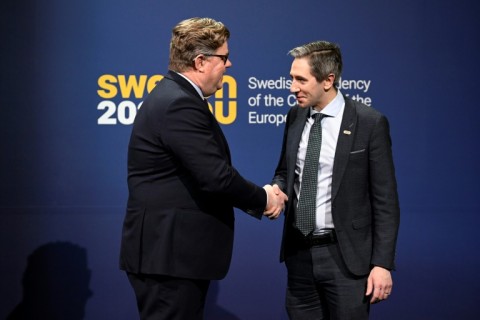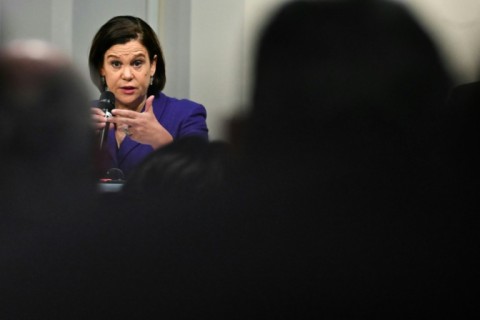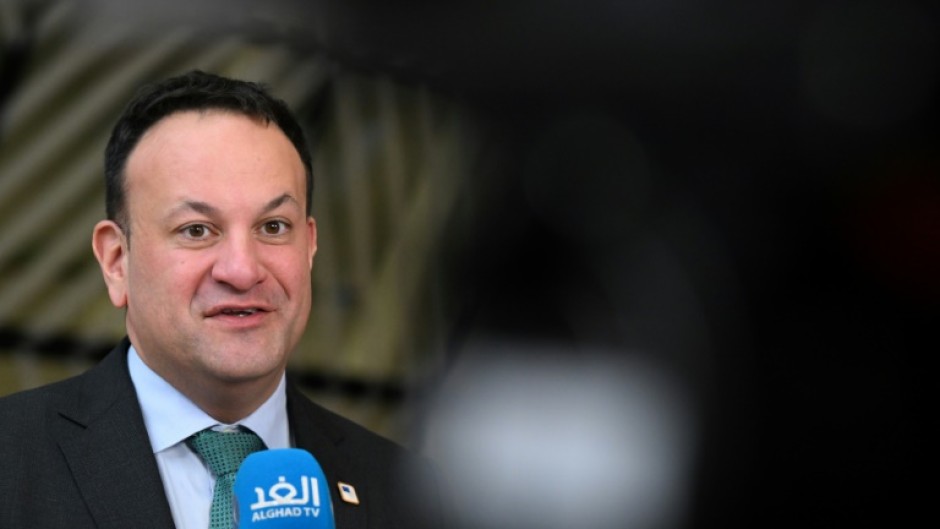Leo Varadkar's announcement that he is stepping down as Ireland's prime minister has triggered a leadership contest in his Fine Gael party.
The 45-year-old leader on Wednesday said his decision was made for "personal and political" reasons, and comes before European parliament and local elections in June.
A general election also has to be held in Ireland by March 2025.
- What happens next? -
The race to replace Varadkar as Fine Gael party leader, and by default as taoiseach (prime minister), began almost immediately.
Speculation is already bubbling about likely contenders.
The contest proper started on Thursday, with parliamentary party members allowed to submit nominations until Monday.
Party members are due to vote between April 2 and 4 before a winner is declared on April 5.
The Irish parliament -- where the governing coalition's centre-right Fine Gael and Fianna Fail parties, and Green Party form a majority -- is expected to vote in the new taoiseach after it returns from recess later in April.
- Who's in the running? -
The frontrunner is education minister Simon Harris, who was expected to formally throw his hat in the ring later on Thursday.

By midday on Thursday, the 37-year-old had secured endorsements from more than 20 party members including Fine Gael ministers, MPs and members of the European Parliament.
His campaign said over 100 councillors also support his candidacy to "re-energise" Fine Gael.
Several Fine Gael cabinet ministers and MPs insist a leadership contest would be good for the party.
But with votes from Fine Gael MPs weighing more than the 20,000-strong party membership, the race could be decided quickly if Harris's dynamic early showing convinces potential challengers not to stand.
Public spending minister Paschal Donohoe, chair of the prestigious Eurogroup of European Union finance ministers, was seen as Harris's main rival.
But Donohoe, 49 -- recently touted as a potential IMF head -- ruled himself out while in Brussels on Thursday on the sidelines of a Eurogroup meeting.
"I think it's over. There is the capacity for contenders to come forward until Monday but with Donohoe out of the race, it's hard to see how anyone is going to stand against Harris," said Paul Cunningham, a political reporter with public broadcaster RTE.
"It's possible but highly unlikely."
Varadkar, also in Brussels for a European Council summit, was tight-lipped, and said he would follow precedent and not come out publicly in favour of a candidate.
"I'm not going to do that and the reason why I'm not going to do that is it will allow me to support wholeheartedly whoever is elected as the next Fine Gael leader," he told reporters.
- What does it mean for the general election? -
Before Varadkar's departure, pundits expected a general election would be held later this year rather than in early 2025.

But the leaders of the other parties in the governing coalition -- Fianna Fail's Micheal Martin and the Green Party's Eamon Ryan -- both say they prefer the government to serve a full five-year-term.
Meanwhile, opposition parties have queued up to demand an immediate general election.
"Rather than limping on, and rather than passing the office of taoiseach amongst yourselves again, the correct democratic route at this point is to go to the people," said Mary Lou McDonald, leader of the largest opposition party, Sinn Fein.
"There needs to be a general election," McDonald, whose left-wing nationalist party currently leads in polls, told RTE.
By Peter Murphy
*The information contained in the article posted represents the views and opinions of the author and does not necessarily represent the views or opinions of eNCA.com

